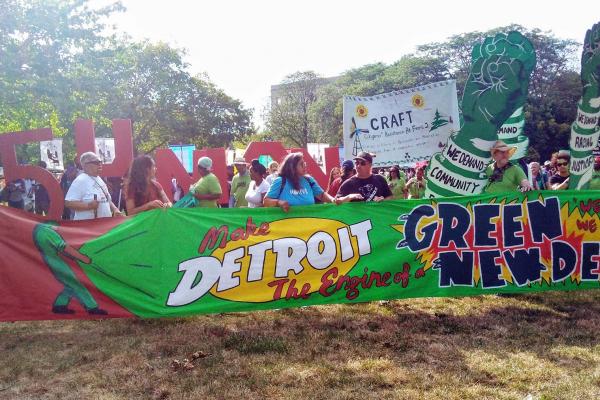Aug 2, 2019
Thousands of activists gathered in Detroit to perform mass demonstrations on Tuesday afternoon, just hours before the opening of the second presidential primary debate. The effort, spearheaded by Frontline Detroit, a coalition of organizations made up of members deeply impacted by pollution and environmental racism, produced demands for addressing the pervasive environmental and economic injustices that have plagued Detroiters for decades.
Read the Full Article

Already a subscriber? Login
